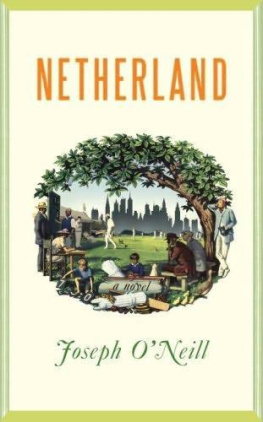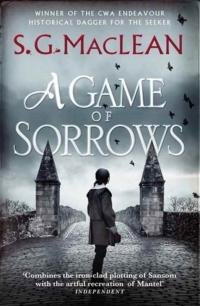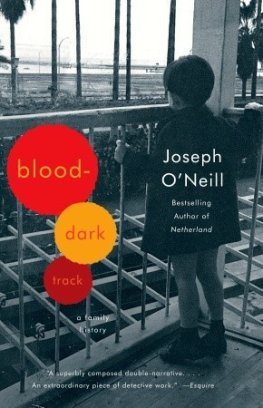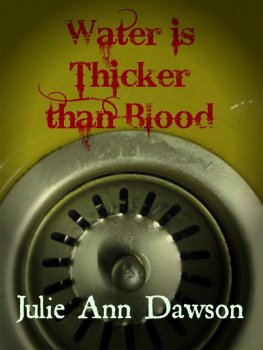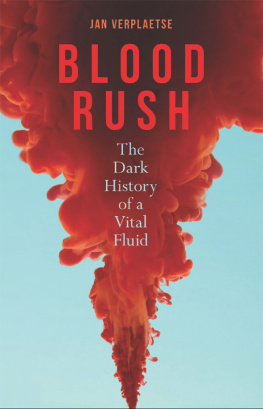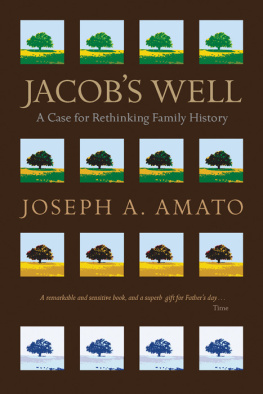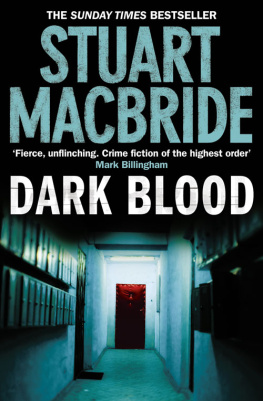Joseph ONeill - Blood-Dark Track: A Family History
Here you can read online Joseph ONeill - Blood-Dark Track: A Family History full text of the book (entire story) in english for free. Download pdf and epub, get meaning, cover and reviews about this ebook. year: 2010, publisher: Knopf Doubleday Publishing Group, genre: Detective and thriller. Description of the work, (preface) as well as reviews are available. Best literature library LitArk.com created for fans of good reading and offers a wide selection of genres:
Romance novel
Science fiction
Adventure
Detective
Science
History
Home and family
Prose
Art
Politics
Computer
Non-fiction
Religion
Business
Children
Humor
Choose a favorite category and find really read worthwhile books. Enjoy immersion in the world of imagination, feel the emotions of the characters or learn something new for yourself, make an fascinating discovery.

- Book:Blood-Dark Track: A Family History
- Author:
- Publisher:Knopf Doubleday Publishing Group
- Genre:
- Year:2010
- Rating:4 / 5
- Favourites:Add to favourites
- Your mark:
- 80
- 1
- 2
- 3
- 4
- 5
Blood-Dark Track: A Family History: summary, description and annotation
We offer to read an annotation, description, summary or preface (depends on what the author of the book "Blood-Dark Track: A Family History" wrote himself). If you haven't found the necessary information about the book — write in the comments, we will try to find it.
Blood-Dark Track: A Family History — read online for free the complete book (whole text) full work
Below is the text of the book, divided by pages. System saving the place of the last page read, allows you to conveniently read the book "Blood-Dark Track: A Family History" online for free, without having to search again every time where you left off. Put a bookmark, and you can go to the page where you finished reading at any time.
Font size:
Interval:
Bookmark:
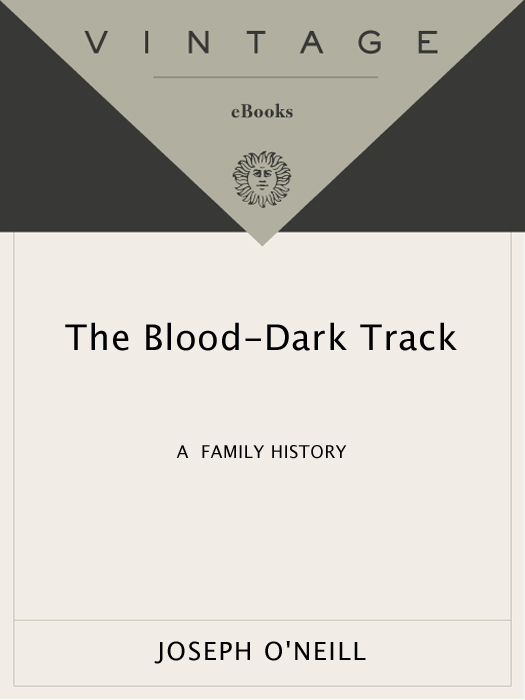
Acclaim for Joseph ONeills
Blood-Dark Track
An extraordinary book. As thrilling as a murder trial. The progress of [ONeills] investigations are imbued with all the darkening excitement of a novel by le Carr or Greene.
The Times Literary Supplement (London)
A gripping detective story, a thoughtful enquiry into nationalism, and a moving evocation of world war at the edges of its European theatre.
The Economist
Joseph ONeills voice in this book is often intimate and engaging, like someone whispering fascinating secrets, but it is also at times a public voice, deeply involved with the silences and lies which have surrounded the past and distorted the present in both Turkey and Ireland. ONeill is a born storyteller with a sharp eye, a great style, and a good wit. His sense of modern Ireland, with all its ghosts and contradictions, is superb.
Colm Tibn
A stealthy, evidential enterprise, it stalks its material, considers, reassesses and chews over the theories. It is a big cat of a book. It creeps up on you, then pounces. And once it has you in its grip, it doesnt let go in a hurry.
Evening Standard (London)
Every word in this riveting book is carefully freighted. Unlike many books which claim to trace a journey, Blood-Dark Track achieves its ambition, leaving teller and listener at the end with a haunting sense of having arrived somewhere new.
The Times (London)
Painfully honest and lucid. Joseph ONeill writes beautifully. The fascination of this book lies in watching him come to terms with the violence in his familys past.
Daily Mail (London)
The book has certainly worked hard to earn the reconciliation it finally imagines. It is too honest to get what it hopes for; too uncertain to know for sure what it is that has to be reconciled or forgiven. In its very unease, it is a remarkable book.
The Irish Times
The story [ONeill] tells here yields much evidence of [his] quickness of mind, analytical skill, contemplative ability and sheer endurance. But the books greatest triumph is the delicate, sympathetic peeling back of layer after layer of two families before and after they overlap.
The Observer (London)
This is a beautifully written and complicated book, in which difficult perceptions are expressed with forensic honesty. Its author finds that he cannot quite define his elusive grandfathers, and their moralities; but he has certainly come closer to defining himself, and his.
The Sunday Telegraph (London)
The premise for this book is a simple and utterly compelling one; a commonality that brings two heterogenous places and cultures and lives together. The fruit of those parallel journeys is a remarkable book, almost novelistic in form and in style. [ONeill] is a born writer with a gorgeous sense of history and emotion and timbre.
Sunday Tribune (Ireland)
[ONeills] thoroughness and energy are phenomenal.
London Review of Books
[ONeill] uncovers fascinating parallels between the two men, illuminating the ways in which individual lives mesh with history.
The Sunday Times (London)
A moving account, judiciously mixing familial feelings with historical research to powerful effect.
New Statesman
Blood-Dark Track
Joseph ONeill was born in Cork, Ireland, in 1964 and grew up in Mozambique, South Africa, Iran, Turkey, and Holland. His works include the novels Netherland, which won the PEN/Faulkner Award for fiction and the Kerry Group Irish Fiction Award, This Is the Life, and The Breezes. He writes regularly for The Atlantic Monthly. He lives with his family in New York City.
Netherland
This Is the Life
The Breezes
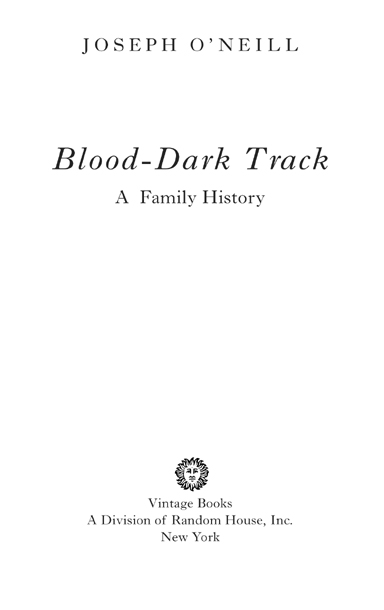
FIRST VINTAGE BOOKS EDITION, OCTOBER 2010
Copyright 2001 by Joseph ONeill
All rights reserved. Published in the United States by Vintage Books, a division of Random House, Inc., New York, and in Canada by Random House of Canada Limited, Toronto. Originally published in Great Britain by Granta Books, London, in 2001.
Vintage and colophon are registered trademarks of Random House, Inc.
Grateful acknowledgment is made to the following for permission to reprint previously published material:
Houghton Mifflin Harcourt and The Wylie Agency LLC: Excerpt from Cities & Memory from Invisible Cities by Italo Calvino, translated by by William Weaver, copyright 1972 by Giulio Einaudi Editore s.p.a., English translation copyright 1974 by Harcourt, Inc. Originally Le citta invisibili by Italo Calvino, copyright 1972 by Italo Calvino. Reprinted by permission of Houghton Mifflin Harcourt Publishing Company and electronically and in print outside the US by permission of The Wylie Agency LLC. Alfred A. Knopf: Excerpt from THE REBEL by Albert Camus, translated by Anthony Bower, translation copyright 1956 by Alfred A. Knopf, a division of Random House, Inc.; excerpt from LETTERS OF THOMAS MANN, 18891955, by Thomas Mann, translated by Richard & Clara Winston, copyright 1970 by Alfred A. Knopf, a division of Random House, Inc. Reprinted courtesy of Alfred A. Knopf, a division of Random House, Inc. Penguin Classics: Excerpt from THE HOUSE OF THE DEAD by Fyodor Dostoyevsky, translated with an introduction by David McDuff (Penguin Classics, 1985), copyright 1985 by David McDuff. Excerpt from ESSAYS AND APHORISMS by Arthur Schopenhauer, selected and translated with an introduction by R. J. Hollingdale (Penguin Classics, 1970), translation and introduction copyright 1970 by R. J. Hollingdale. Reprinted courtesy of Penguin Group UK, London, on behalf of Penguin Classics. Roberts Rinehart Publishers and Mercier Press: Excerpt from GUERILLA DAYS IN IRELAND by Tom Barry (1949). Reprinted courtesy of Roberts Rinehart Publishers, an imprint of Rowman & Littlefield Publishing Group and Mercier Press, County Cork, Ireland. Scribner: Five lines from Hound Voice by W. B. Yeats from THE COLLECTED WORKS OF W. B. YEATS, VOLUME I: THE POEMS, REVISED, edited by Richard J. Finneran, copyright 1940 by Georgie Yeats, copyright renewed 1968 by Bertha Georgie Yeats, Michael Butler Yeats and Anne Yeats. All rights reserved. Reprinted by permission of Scribner, a division of Simon & Schuster, Inc. Syracuse University Press: Excerpt from AN ONLY CHILD by Frank OConnor (Syracuse University Press, 1997). Reprinted courtesy of Syracuse University Press. Verso: Excerpt from MINIMA MORALIA: REFLECTIONS ON A DAMAGED LIFE by Theodor Adorno, translated by E. F. N. Jephcott (Verso, London, 2005). Reprinted courtesy of Verso.
The Cataloging-in-Publication data is available on file at the Library of Congress.
eISBN: 978-0-307-74265-0
www.vintagebooks.com
v3.1
To the memory of Joseph Dakad (18991964) and
James ONeill (19091973); to my sons; and to Sally.
This book is largely the product of help I have received from my family, Turkish and Irish. As regards the latter, I am grateful, first and foremost, to my grandmother, Eileen ONeill, who freely lent herself to a project that, by its nature, was troubling to her. I owe a similar debt of gratitude to Jim ONeill, Terry ONeill, Ann Pollock-ONeill and Marian OSullivan-ONeill, who shared thoughtful and sensitive insights into the character and life of my Irish grandfather, Jim ONeill. My greatest debt, here, is to Brendan ONeill. His generosity of spirit and willingness to reflect openly on sensitive historical issues made a huge contribution to this book. I also wish to thank, in relation to the Irish story, Acushla Bastible, Pat Buckley, Con and Oriana Conner, Dan Daly, Antony Farrell, Mick Fitzgibbon, Derry and Phyllis Kelleher, Paddy Lynch, Peig Lynch, Frank and Mary Morris, Barney McFadden, Angela McEvoy-ONeill, Shammy OConnell, Pat ONeill, Sen ONeill, Mary OSullivan, Billy Pollock, Mrs Salter-Townshend, Brendan Sealy, Christopher Somerville. John Bowyer Bell was an essential source of information about the shooting of Admiral Somerville and pre-Emergency republicanism generally. My heavy reliance on the work of Peter Hart and Uinseann MacEoin will be evident to readers.
Font size:
Interval:
Bookmark:
Similar books «Blood-Dark Track: A Family History»
Look at similar books to Blood-Dark Track: A Family History. We have selected literature similar in name and meaning in the hope of providing readers with more options to find new, interesting, not yet read works.
Discussion, reviews of the book Blood-Dark Track: A Family History and just readers' own opinions. Leave your comments, write what you think about the work, its meaning or the main characters. Specify what exactly you liked and what you didn't like, and why you think so.

